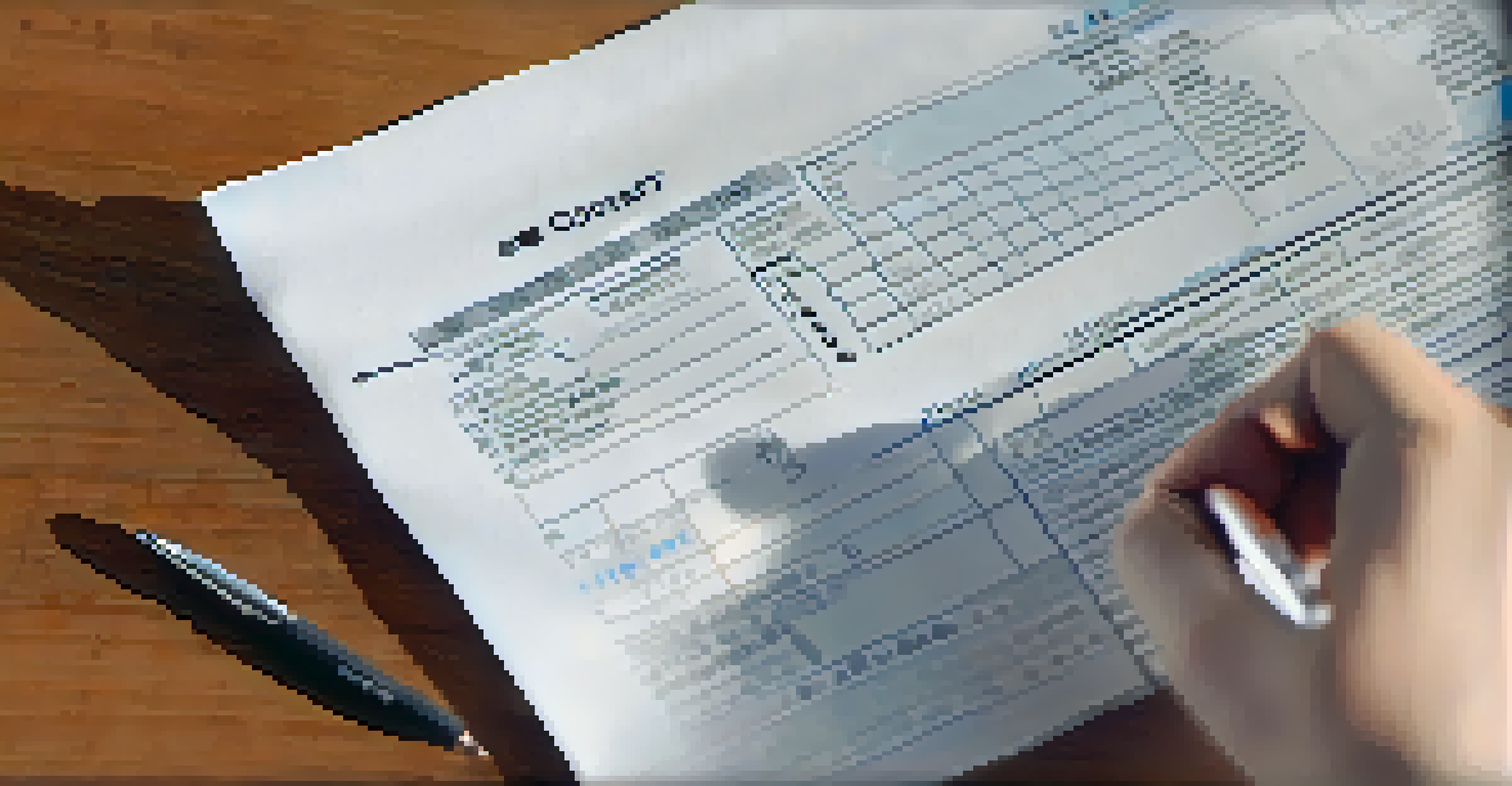A Deep Dive into Deductions for Educational Expenses Explained

Understanding Educational Expense Deductions
Educational expense deductions can significantly reduce your tax bill, but many people aren't aware of what qualifies. These deductions can apply to tuition, fees, and sometimes even books and supplies. It's essential to grasp not only what constitutes an educational expense but also how the IRS defines these categories.
Education is not preparation for life; education is life itself.
For instance, if you're a student or a parent paying for college, you may be eligible for deductions on tuition fees. Similarly, educators who invest in their own continuing education may also claim certain expenses. Understanding these specifics can help you maximize your deductions when tax season rolls around.
Ultimately, the goal is to make quality education more accessible by alleviating some of the financial burdens. By familiarizing yourself with the types of expenses that qualify, you can take full advantage of these deductions and keep more of your hard-earned money.
Types of Educational Expense Deductions Available
There are several types of deductions available for educational expenses, including the American Opportunity Tax Credit (AOTC) and the Lifetime Learning Credit (LLC). The AOTC is geared toward undergraduate students, allowing for a credit of up to $2,500 per eligible student. On the other hand, the LLC is more flexible, providing a credit for any post-secondary education.

It's important to note that these credits have specific eligibility requirements. For example, the AOTC requires that you be enrolled at least half-time in a degree program, while the LLC can apply to courses taken to improve job skills or for personal enrichment. Knowing these nuances can help you choose the best option for your situation.
Maximize Tax Deductions on Education
Understanding which educational expenses qualify can significantly reduce your tax bill.
Additionally, if you’re pursuing education that leads to a degree or certificate, you may qualify for both types of credits in different tax years. By strategically planning your educational expenses, you can maximize your tax benefits over time.
Qualifying Educational Institutions and Expenses
To claim educational deductions, it's crucial to know which institutions qualify. Generally, eligible institutions include colleges, universities, vocational schools, and other post-secondary educational organizations that are accredited. This means that not just any online course or workshop will do; it has to meet specific criteria set by the IRS.
The more that you read, the more things you will know. The more that you learn, the more places you'll go.
Educational expenses that qualify encompass a wide range of costs, such as tuition, mandatory fees, and course materials. However, expenses like room and board or transportation may not qualify, which can be a common misconception. Keeping track of which expenses you can deduct will streamline the tax preparation process.
Ultimately, understanding what qualifies helps you avoid pitfalls during tax filing. By ensuring that you are only claiming eligible expenses, you can prevent unwanted complications and maximize your benefits.
How to Document Educational Expenses for Deduction
Proper documentation is key when it comes to claiming educational deductions on your taxes. Always keep receipts for tuition payments, books, and any other educational materials. The IRS recommends maintaining these records for at least three years after you file your tax return, just in case you are audited.
In addition to receipts, it’s also beneficial to keep a log of your educational activities, including courses taken and related costs. This comprehensive record can help you substantiate your claims if required. Many people overlook this step, but thorough documentation can save you a world of trouble later.
Keep Accurate Documentation
Maintaining thorough records of tuition, fees, and materials is crucial for substantiating your educational deductions.
Consider using digital tools or apps designed for expense tracking to simplify this process. By staying organized, you'll not only make tax season less stressful but also ensure you don’t miss out on any eligible deductions.
Tax Benefits for Continuing Education and Training
If you’re an adult returning to school or pursuing professional development, don’t overlook the potential tax benefits available to you. Many employers offer tuition reimbursement programs, which can further enhance your financial situation. These reimbursements may not be considered taxable income, allowing you to benefit from educational advancement without financial burden.
Additionally, courses taken for job-related skills may qualify for deductions or credits. This can include workshops, certifications, and seminars. It’s a great way to invest in your career while taking advantage of tax benefits that can offset your costs.
By exploring all options for educational expenses, you can make informed decisions that benefit both your career and your wallet. Investing in your future through education is rewarding, and with the right strategies, it can also be financially savvy.
Common Mistakes When Claiming Educational Deductions
Even with the best intentions, many taxpayers make common mistakes when it comes to claiming educational deductions. One frequent error is overlooking eligible expenses, such as required books or materials. These small costs can add up and should not be disregarded when calculating your total educational expenses.
Another mistake is failing to verify eligibility for specific credits. Many people assume they qualify without checking the IRS guidelines, leading to potential audits or penalties. Taking the time to research and understand the requirements can save you from headaches down the line.
Consulting Tax Professionals Helps
Seeking advice from a tax professional can ensure you capitalize on all available benefits and stay updated on tax laws.
Lastly, some taxpayers forget to keep adequate documentation or misplace receipts, which can jeopardize their claims. By being diligent in record-keeping and aware of common pitfalls, you can ensure a smoother tax filing experience.
Consulting a Tax Professional for Educational Deductions
Navigating the complexities of educational deductions can be daunting, which is where a tax professional comes in handy. They can provide personalized advice tailored to your unique situation, ensuring you capitalize on all available benefits. A tax expert can help clarify eligibility and guide you through the documentation process.
Moreover, tax laws change frequently, and staying up-to-date can be a challenge. A professional can keep you informed of any changes that may impact your deductions. This can be especially important if you're pursuing multiple educational opportunities over the years.

In the end, investing in professional tax advice can pay off significantly. By maximizing your educational deductions with expert guidance, you can save money and make the most of your educational investments.